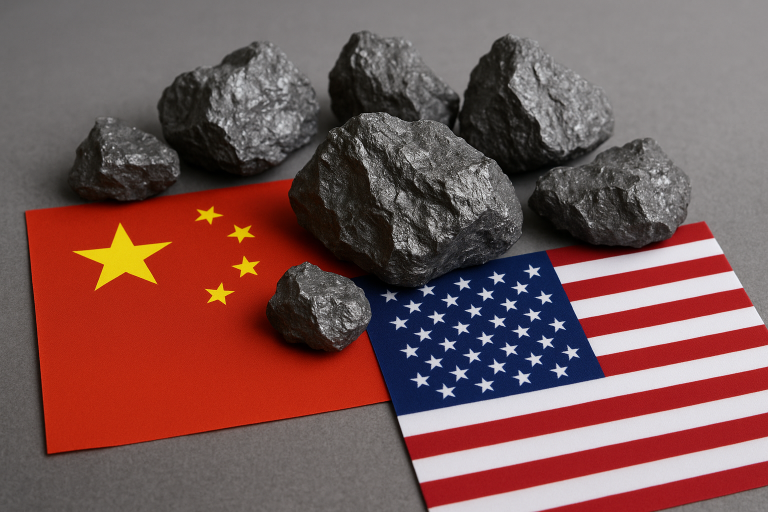China is preparing to relax some of its rare earth export rules by introducing one-year general licences, following trade discussions with the United States, as per a Reuters report.
The move could accelerate shipments and ease shortages in critical industries, yet analysts and insiders caution that Beijing’s wider export curbs remain firmly in place.
With China responsible for processing more than 90% of the world’s rare earths, the new system offers limited relief in a market where control still translates into leverage.
Beijing drafts new licence framework
The Ministry of Commerce, reports Reuters, has informed several rare earth exporters that they will soon be able to apply for annual export permits designed to simplify trade procedures.
During recent briefings, officials outlined the paperwork and compliance information that companies will need to submit.
The reform follows an agreement reached between Presidents Donald Trump and Xi Jinping, under which China temporarily paused restrictions imposed in October for one year.
Washington described the move as evidence that China would introduce general licences, calling it a de facto end to the export controls that have constrained global supply chains.
As per the report, officials in Beijing have privately said that the licensing system is still being developed and could take several months to implement, suggesting that exporters will continue to face delays until at least the end of the year.
Trade leverage rooted in control of rare earths
China’s dominance of the rare earth market has long been a strategic tool in its trade rivalry with the United States.
The country accounts for over 90% of global processing and a similar share of rare earth magnet production.
These materials are indispensable in electric vehicles, renewable energy technologies, and advanced weapon systems.
Beijing’s export rules, introduced in April and expanded in October, required exporters to obtain a separate licence for every shipment, often leading to lengthy reviews.
The restrictions caused acute shortages in May that disrupted manufacturing lines across multiple sectors, particularly the automotive industry.
Of the 2,000 export applications submitted by European Union firms since April, just over half have been approved.
The remainder remain pending or have been denied, leaving buyers uncertain about delivery schedules and production costs.
New permits may ease bottlenecks
Industry sources told the news agency, the upcoming one-year licences will likely allow higher export volumes and reduce administrative backlogs.
Exporters have already begun preparing documents that will include detailed information about their customers and end uses.
The new permits will still be subject to scrutiny, particularly for clients linked to defence or sensitive technologies.
Companies in those sectors are expected to face longer reviews and stricter documentation requirements.
The post China to relax rare earth export rules after US talks, broader restrictions may remain appeared first on Invezz

